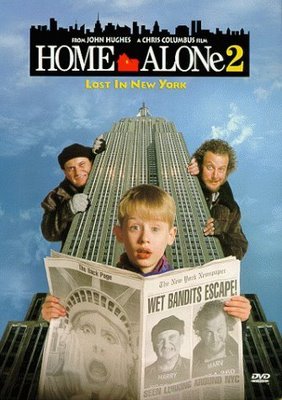
On Monday in between our tutorials and the Mahara induction in the afternoon, Sam and I were browsing through the DVDs in the library. Sam picked up the film Paradise Now and suggested I should take it out so I did. Later on I got a text from Sam saying I had left the DVD in his bag then a few hours later got another text saying he enjoyed the film. So on Tuesday night I decided I would sit down and watch it before I ran out of time.
I found that I really enjoyed it for the most part. The story centres around two Palestinian friends, Said and Khaled, who are recruited to go on a suicide bombing mission in Tel Aviv. It is made clear throughout that they are committed to the cause of freeing Palestine from Israeli occupation and they believe they have been chosen by God for this mission. A lot of very important and poignant themes were addressed in the film I think and it was a very interesting, engaging and often sad story.
One of the most important messages conveyed in the film I felt was the age old moral that two wrongs don't make a right. Or as Ghandi said "An eye for an eye makes the whole world blind." The film does reasonably well I think in portraying what motivates seemingly ordinary young men to want to commit such radical actions. At the start of the story I think the writers have been very deliberate to include scenes like Said (the main character) playing with his young brother or engaging in what we would view as a very similar lifestyle to our own. The major difference of course is their home is situated in the middle of a war zone and many of the luxuries that we take for granted are not there - other than that, it is very easy to relate to the family. This in turn helps to make the characters much more engaging. We don't specifically view anyone as "goodies" or "baddies" which helps the audience to understand that those involved are people from backgrounds not dissimilar to our own. There are no real references to why the men feel so strongly for their cause in the film and the ordinary viewer has no reason to have any feelings of antipathy towards the Israeli occupation. The men discuss it often, however, and the scene near the start where they are recording the propaganda video shows clearly why they are prepared to commit these actions and the cause they are prepared to sacrifice their own lives to advance.
There is also a love interest with Said and a woman, Suha, he met while working as a mechanic. This turns out to be one of the most pivotal factors in the film, I think, that ultimately influences the decisions of both men. One of the mantras that is repeated a couple of times by Said's friend, Khaled, is that living in inferiority and occupation is far worse than death. This further helps us to understand the motivations of the men. One of the most powerful scenes in the film for me is when Khaled is remonstrating with Suha in the car and, although we don't realise it at the time, this forms a major turning point in the film. Suha, who is aware of what Said and Khaled are planning to do, is desperately trying to dissuade Khaled but of course, like many like-minded young men he is resolute in his belief that this suicide mission will somehow help their cause of freedom. Suha responds passionately to this in what is one of my favourite lines in the film, which I managed to find on the IMDb site:
"And what about us? The ones who remain? Will we win that way? Don't you see that what you're doing is destroying us? And that you give Israel an excuse to carry on?"
Although she is clearly in support of freedom for the Palestinian people, she completely renounces suicide bombing as a means of achieving that. I think this is one of the most important messages in the whole film that by committing these actions, they are only giving Israel an excuse to continue their occupation and are in actual fact pushing their cause for freedom further out of reach.
All in all I found the film an enjoyable watch. It has great drama and the plot and characters are very engaging. The story is often very gripping and there are a number of plot twists. At times it could be very sad and there were many poignant moments throughout as well. The final shot of the scene literally had me on the edge of my seat but I won't spoil it because I would recommend the film to anyone.













